OM SYSTEM OM-1 Revealed: Flagship Pro M43 Camera & Last to Sport Olympus Badge
The company formally known as Olympus has revealed the all-new Flagship OM-1 Camera, along with new glass in the shape of 12-40mm and 40-150mm Pro Lenses.
With much deliberation around sensor size of late, the new model from OM-System promises to revolutionise the creative possibilities from the micro-four third sensor and deliver a one-of-a-kind experience for all content creators.
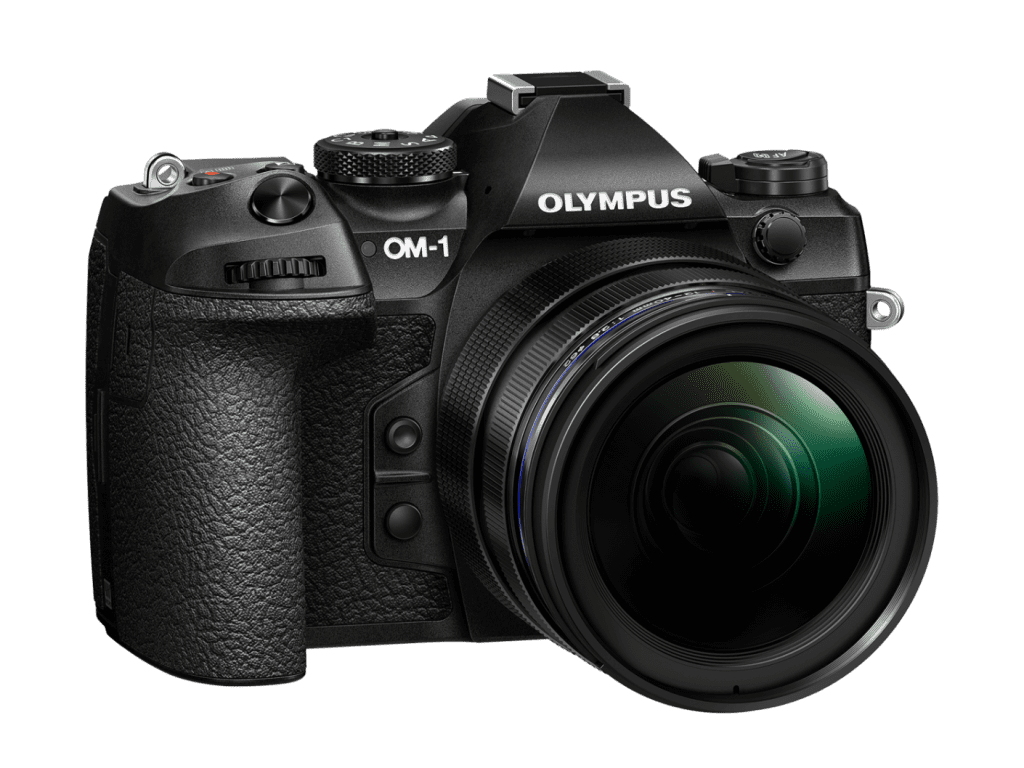
Whilst the new pro flagship will bear the Olympus name, it will be the last in a long line of quite brilliant, era-defining imaging products that have helped to shape the photographic landscape. All future cameras from the company will take the OM System badge and, as in our headline here, the camera is actually called the OM System OM-1, yet, since this is the 50th anniversary of the launch of the original OM-1 film camera, the Olympus name is enjoying one last outing.
OM System OM-1 Key Features
- 20MP Stacked BSI Live MOS MFT Sensor
- DCI/UHD 4K 60p 10-Bit Video Recording
- 10 fps Shooting, 120 fps with E. Shutter
- Cross Quad Pixel Phase-Detection AF
- 5.76m-Dot OLED Electronic Viewfinder
- 3.0″ 1.62m-Dot Swivel Touchscreen LCD
- 5-Axis In-Body Image Stabilization
- High-Res Shot, Live ND & Composite Modes
- IP53 Weather-Sealed & Freezeproof Design
- Dual UHS-II SD Card Slots
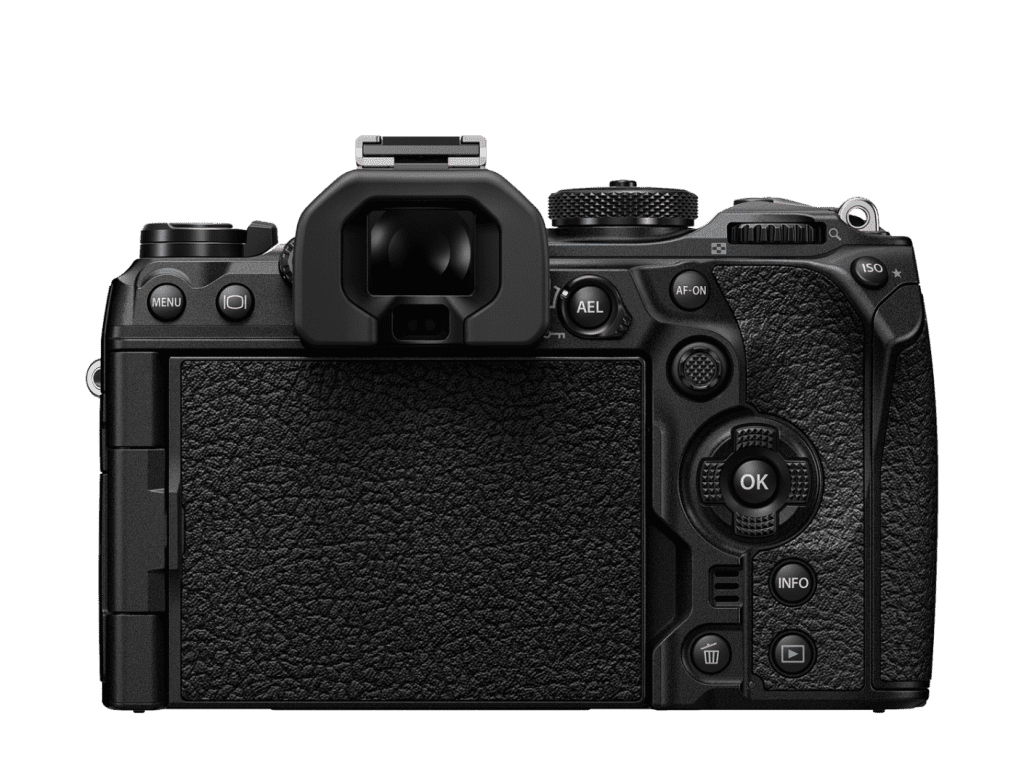
At the core of the new OM System/Olympus OM-1 you’ll find an all-new, stacked, backside illuminated, 20.4MP Live MOS sensor. Its stacked structure allows incredibly fast readout speeds, enabling the camera to capture stills at [up to] 120fps in single AF, and up to 50fps with continuous AF.
With regards to the pixel count and the fact that it doesn’t exceed the 20MP barrier of the Micro Four Thirds format, it’s not really an issue as the OM-1 can not only capture 80MP shots, thanks to the pixel-shift High Res Shot mode [with tripod] but can also shoot 50MP handheld High Res Shot. The speed of the new machine hits new levels, too, achieving the 50MP High Res Shots twice as quickly as the 80MP variety as the new stacked sensor combined with the new image processor. The same processor that powers the super-fast autofocus.
Rock steady
OM System has continued with some of Olympus’ leading stabilisation, with the OM-1 being capable of up to 8 stops of image stabilisation [with specific compatible lenses], and 7 stops of compensation as standard thanks to its in-body image stabilisation.
Happily, the new camera appears to have addressed historic issues with low light performance, applying the new tech and promising the new sensor is now akin to 35mm-equivalent sensor performance. A bold statement, but one that is covered off by an expanded ISO range of 200-102,400, along with a claimed 2-stop improvement in noise performance and a 1-stop boost to dynamic range. Naturally, we’re waiting for a sample to arrive so that we can test these claims. Keep an eye on our YouTube Channel and #TheMeasure playlist within it for all updates.
AI Inside
OM System’s new AI Detect deep learning AF and the quad pixel sensor makes the OM-1 3x quicker and 3x more capable of recognising and tracking moving objects. Hailed as a computational breakthrough, OM System’s intent to utilise as much technical cleverness is also demonstrated in the form of improved Live ND filters. These are a software-driven alternative to the best neutral density filters, which now go up to 6EV, along with handheld Live Composite mode.
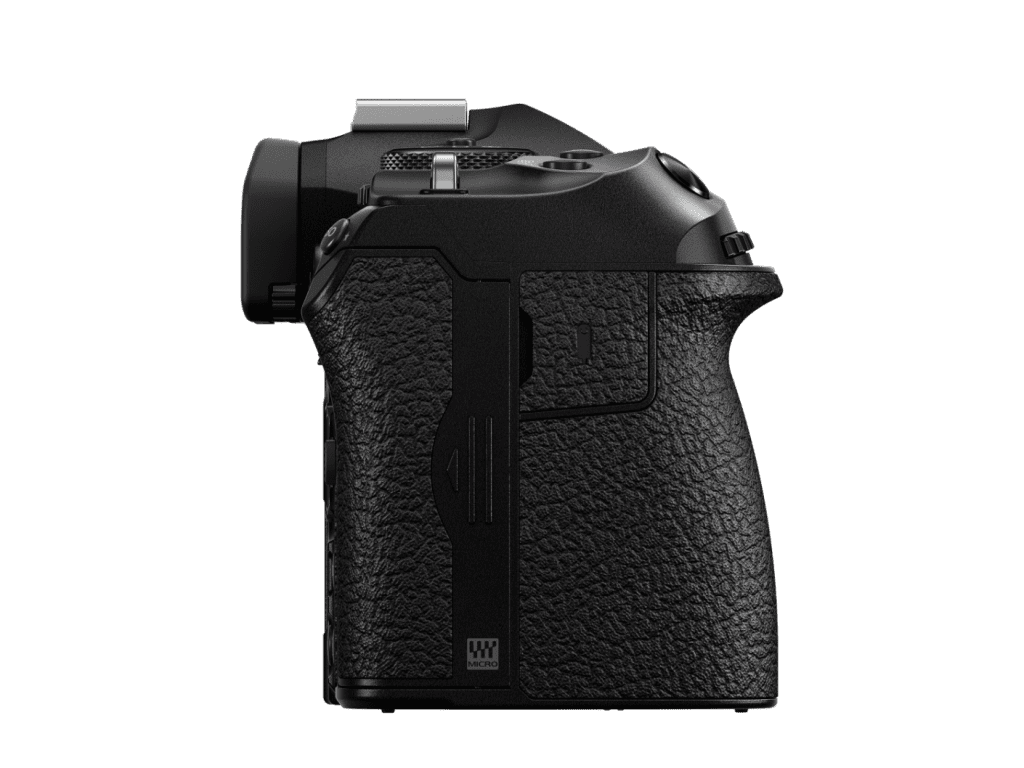
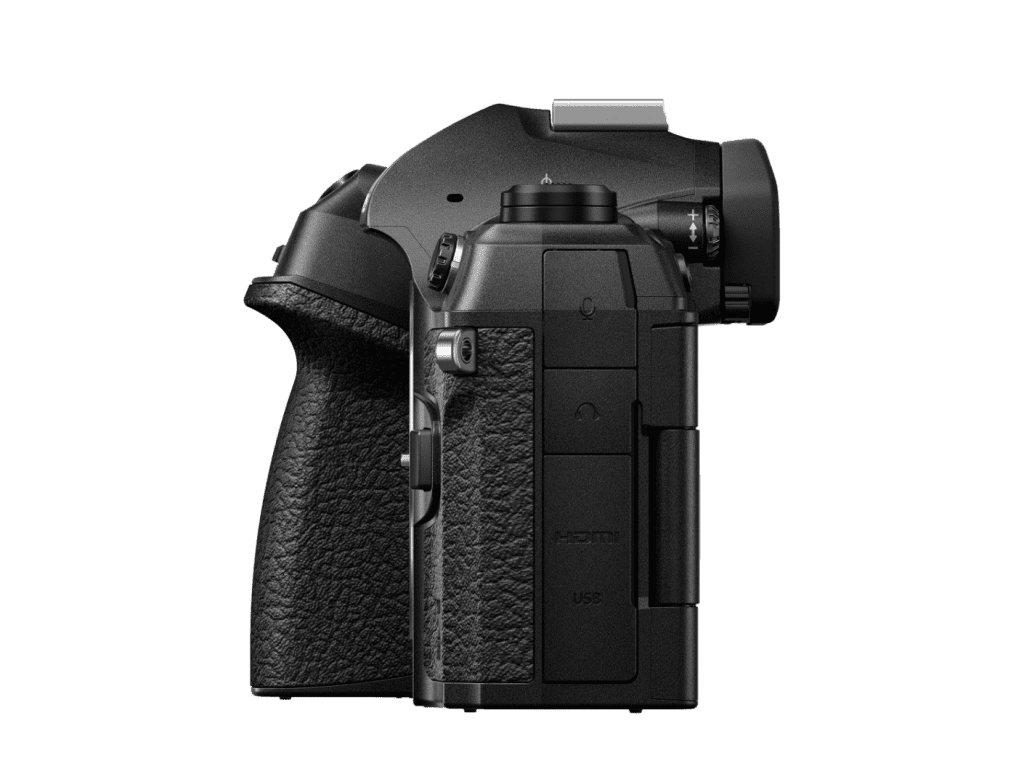
Video Capabilities
The new camera boasts DCI/UHD 4K video recording up to 60p and 10-bit 4:2:0 sampling. Full HD recording is possible at up to 240 fps but there are no 4:2:2 10-bit recording options available. An HLG picture mode permits in-camera HDR recording and an OM-Log gamma allows for a greater colour grading range for adjusting the footage in post-production.
In-camera time-lapse production is possible, up to UHD 4K with frame rates from 5 fps to 30 fps.
Media: The OM-1 houses dual SD, SDHC [UHS-I/II], SDXC [UHS-I/II] slots, although it’s a shame that there’s not space for at least one of the card slots in CFexpress Type B.
HDMI Output: It’s really a shame that the new camera ‘only’ has a Mini HDMI output. That said, via HDMI there’s the option to select three options with the camera:
- Monitor Mode
- Record Mode
- RAW Mode
12-bit RAW output is supported via the micro-HDMI port when working with an optional compatible external recorder, [such as the Atomos Ninja V or Ninja V+]. Using this approach, you will be able to video ProRes RAW in either DCI 4K [4096 x 2160] or UHD 4K [3840 x 2160].
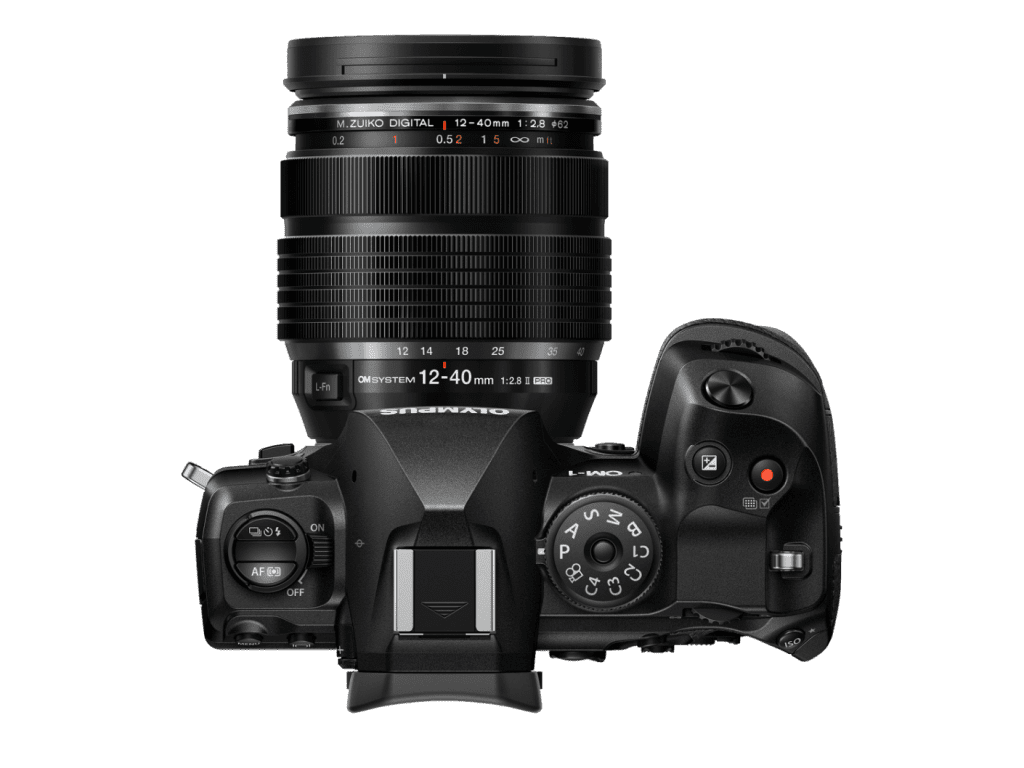
One-push Movie Digital Converter: OS System has incorporated a ‘One-push Movie Digital Converter’. This, essentially provides a 1.4x crop of your image.
Video Assist Tools: Along with the typical focus magnification, the new camera also has peaking [available in four colours], zebras, histogram, and a centre marker. There is no listing for a waveform. Timecode is available, but there is no material way of inputting timecode unless you use something along the lines of a Tentacle Sync that can input timecode over audio.
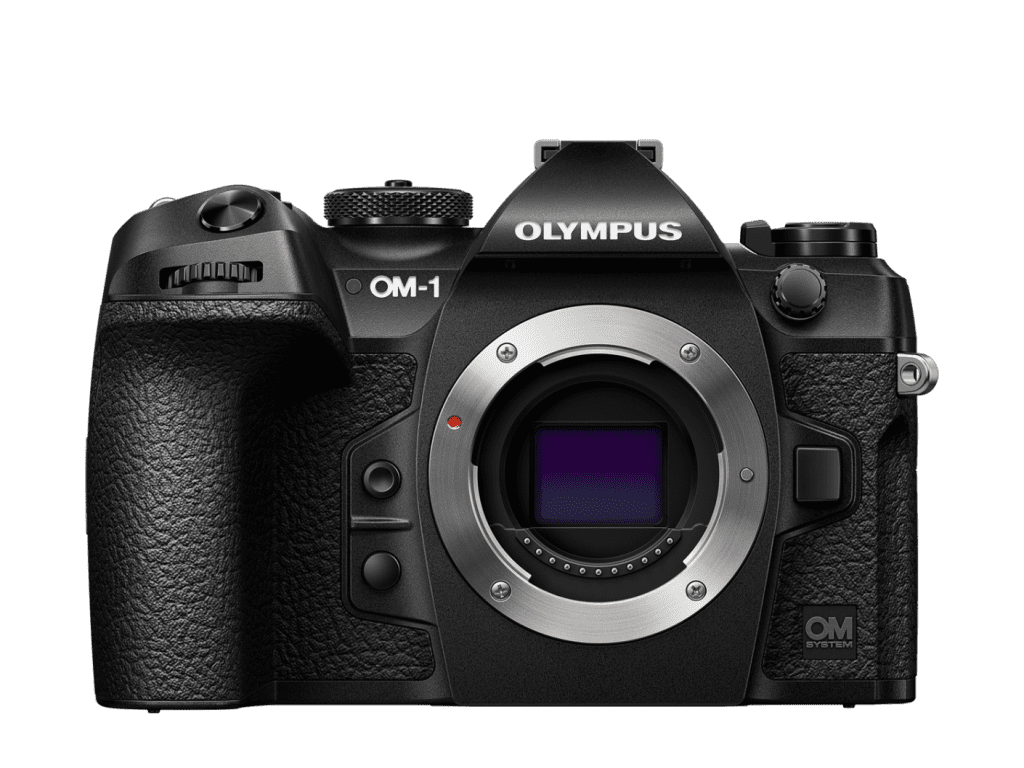
Audio
With regards to audio capture, the new camera has a built-in stereo microphone and a single 3.5mm mic input jack, although there is also a 3.5mm headphone jack for monitoring audio.
Rear LCD & EVF
The electronic viewfinder [EVF] boasts a 5.76m-dot OLED panel with an 0.83x-equivalent magnification, a 21mm eyepoint, and a 120 fps refresh rate, whilst the 3.0″ 1.62m-dot LCD touchscreen has a vari-angle structure with 270° of swivel to suit working from high, low, and front-facing angles.
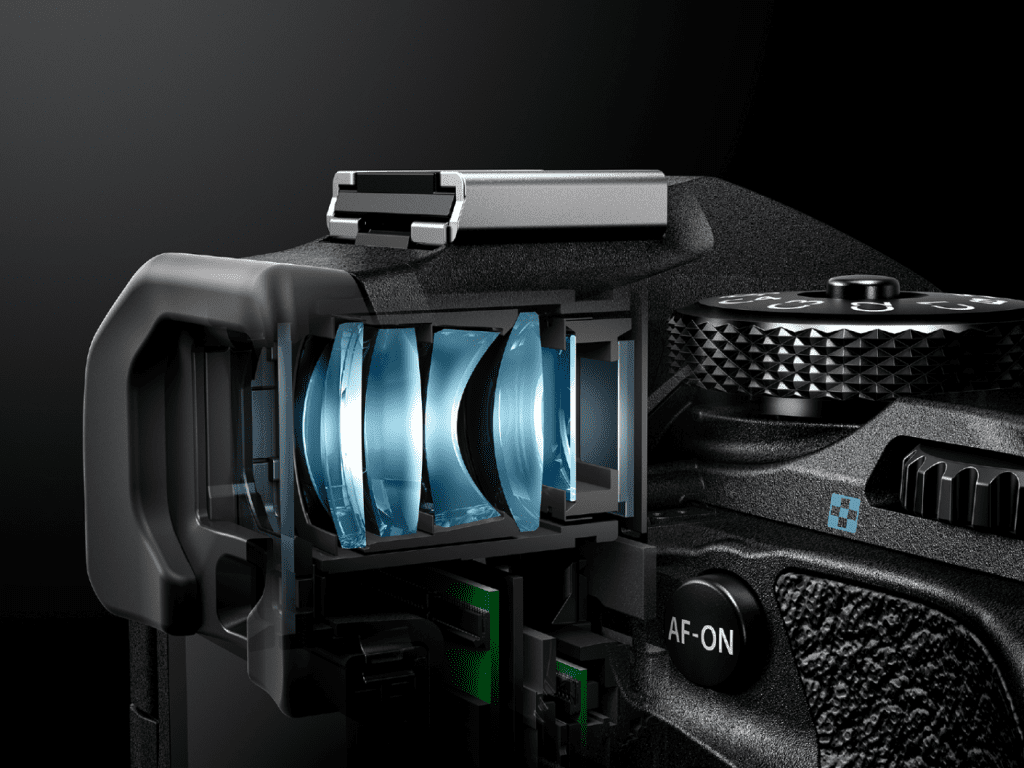
Weather-Sealing
Olympus has long been regarded as the brand with industry-leading weather sealing. This takes another leap forward, which is now rated at a breathtaking IP53 when coupled with specific compatible lenses including the new OM System M.Zuiko 12-40mm f/2.8 Pro II, [Tap HERE for more info on these].
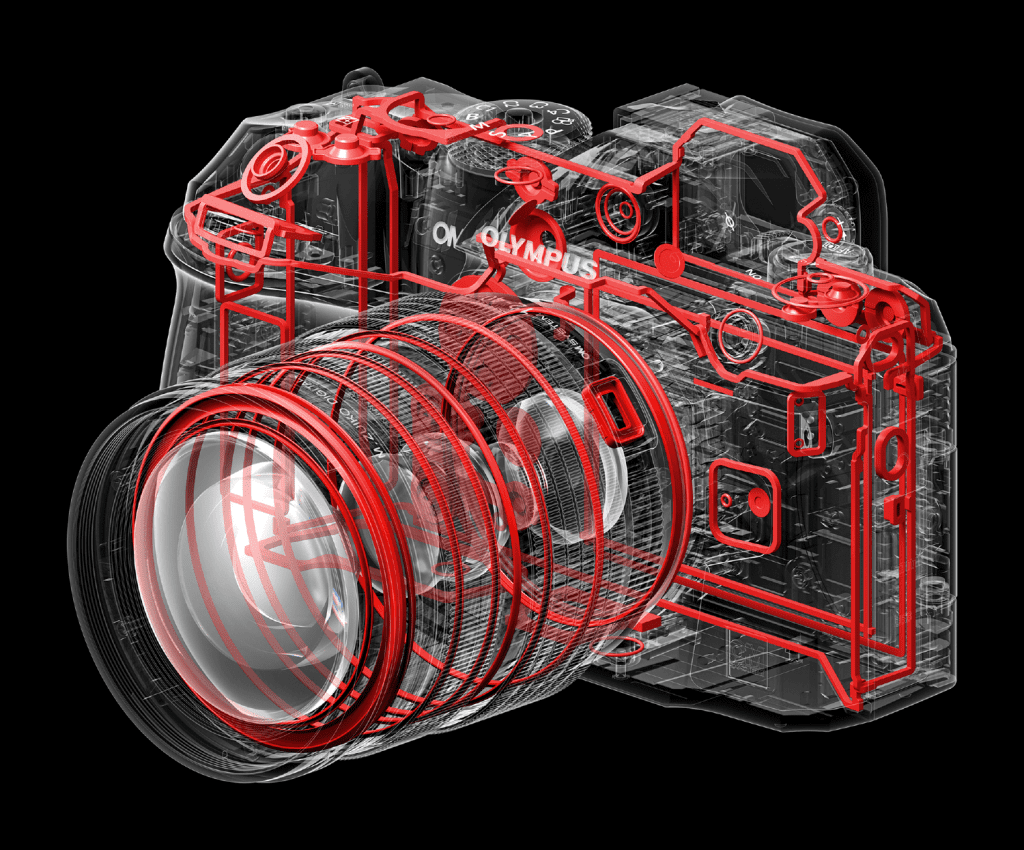
Pricing and Availability
The new flagship OM System/Olympus OM-1 will be available from early March 2022 and will come in at 1p under 2K at £1,999.99! See more at OM System’s dedicated web pages.










